‘Walk Run Cha Cha,’ short documentary winner of O.C.’s Viet Film Fest, earns spot in Oscar shortlist
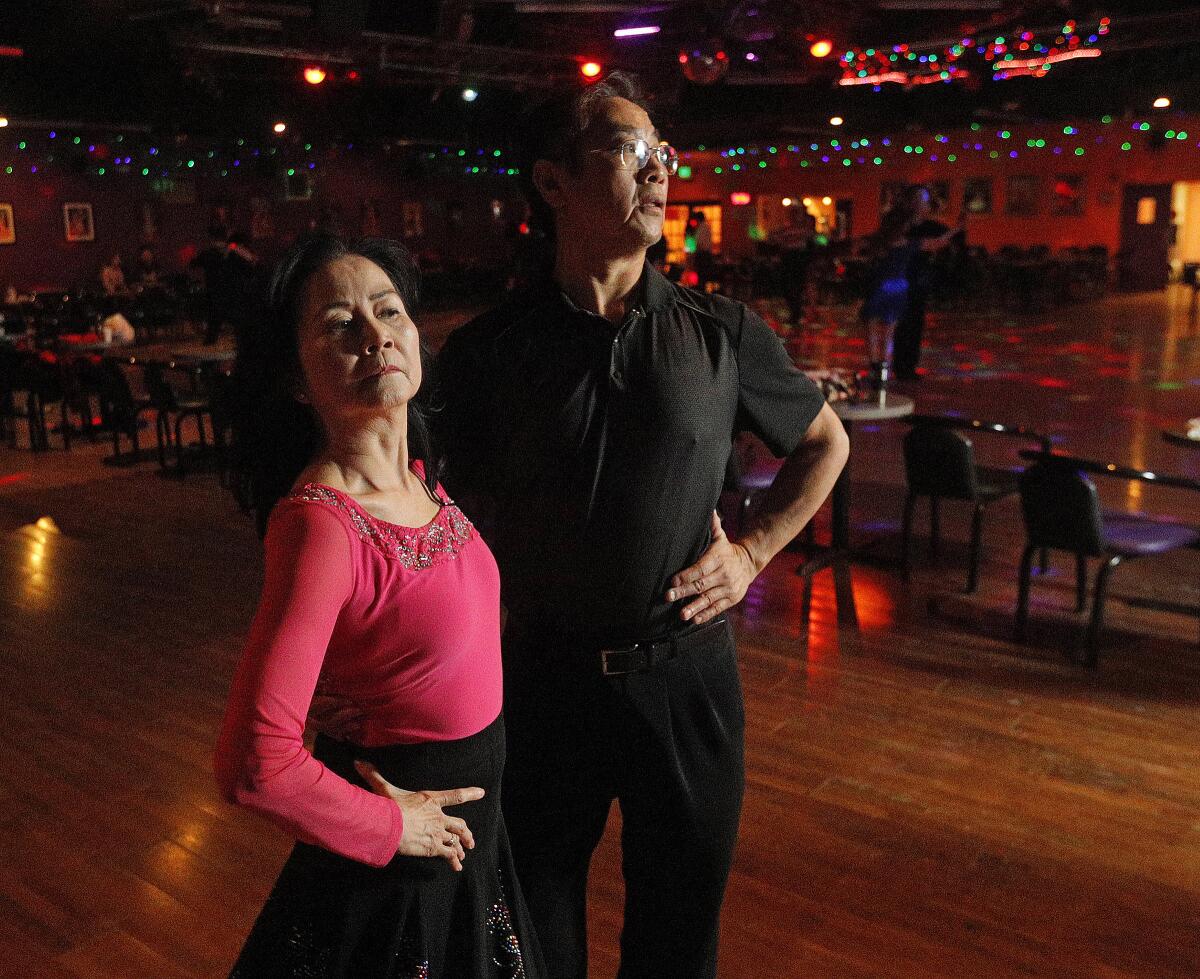
- Share via
It’s a bustling weeknight at Lai Lai Ballroom & Studio in Alhambra. The disco lights flicker over couples scattered across the dance floor, and the speakers blast Mandarin-language pop.
Chipaul and Millie Cao, who come at least four nights a week, practice the routine they’ll be performing for their anniversary party. It’s a jive and cha-cha number set to a medley of Michael Jackson songs.
They are planning a January party to mark three milestones: their 30th wedding anniversary, Millie’s birthday and Chipaul’s 40 years in the United States.
This month they got another reason to celebrate: “Walk Run Cha Cha,” a 20-minute short documentary directed by Laura Nix about the Caos’ real-life refugee love story, made the Oscar shortlist for documentary short.
“We didn’t in a million years think that our film would go this far,” says Chipaul, adding that they thought the doc would simply be “a fun memory for our daughter and us to look at one day when we get older. The whole process has brought us beyond any level of expectation.”
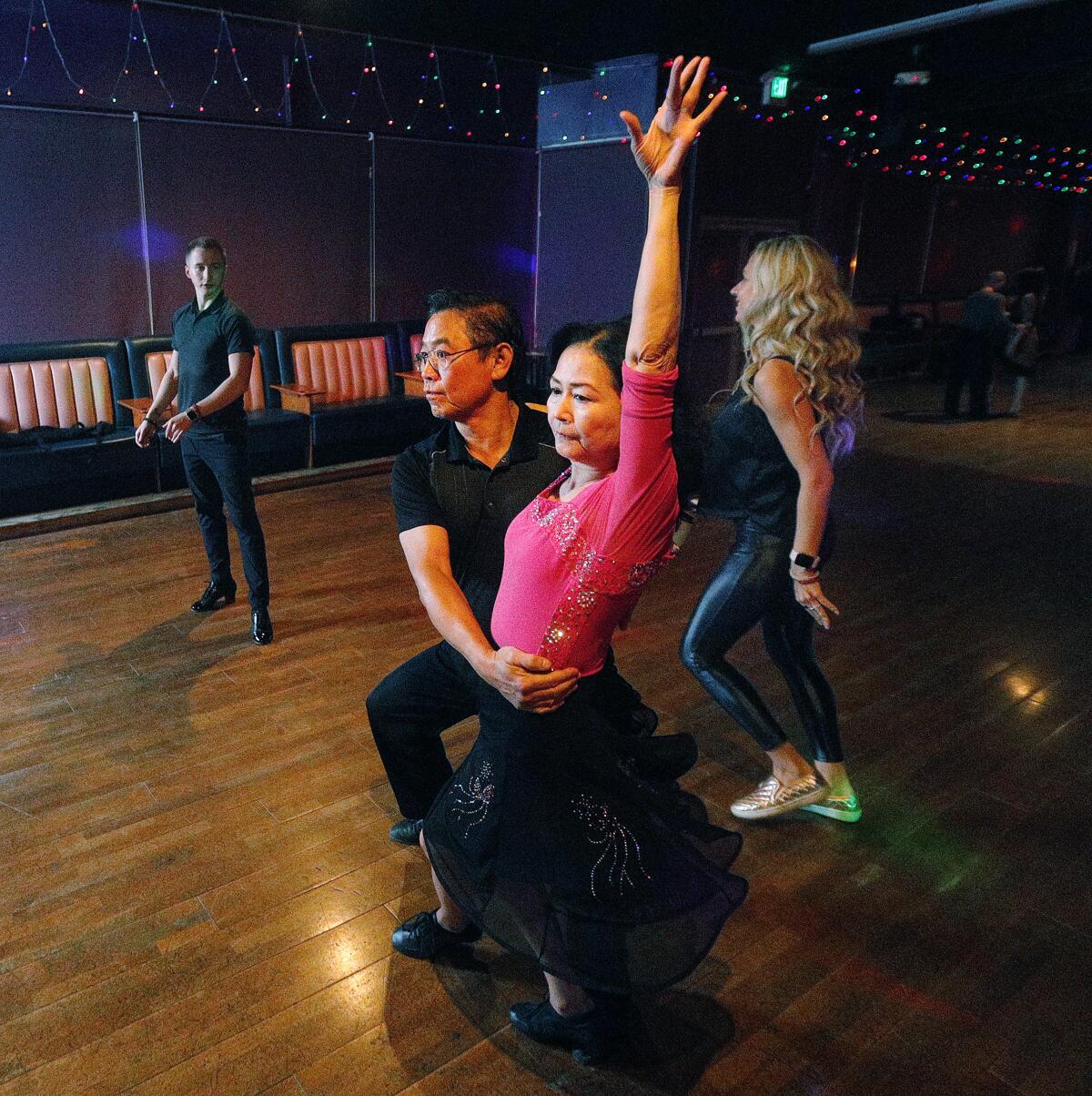
The Caos met the director when she stumbled upon Lai Lai while researching mini-malls in the San Gabriel Valley for another film project. Intrigued, Nix started taking group classes.
The Caos recruited her to take private dance lessons with their longtime Lai Lai teachers, Maksym Kapitanchuk and Elena Krifuks. Nix eventually recruited them as documentary subjects.
Chipaul works as an electrical engineer, Millie as an auditor. They didn’t started taking ballroom dancing classes together until about seven years ago, but they have gone on to perform in dance competitions and events all around Southern California.
“If one day my coworkers ... see me dance, they will be shocked,” Millie says in the film. “They will never think I can dance the way I dance with my husband. Totally different two people.”
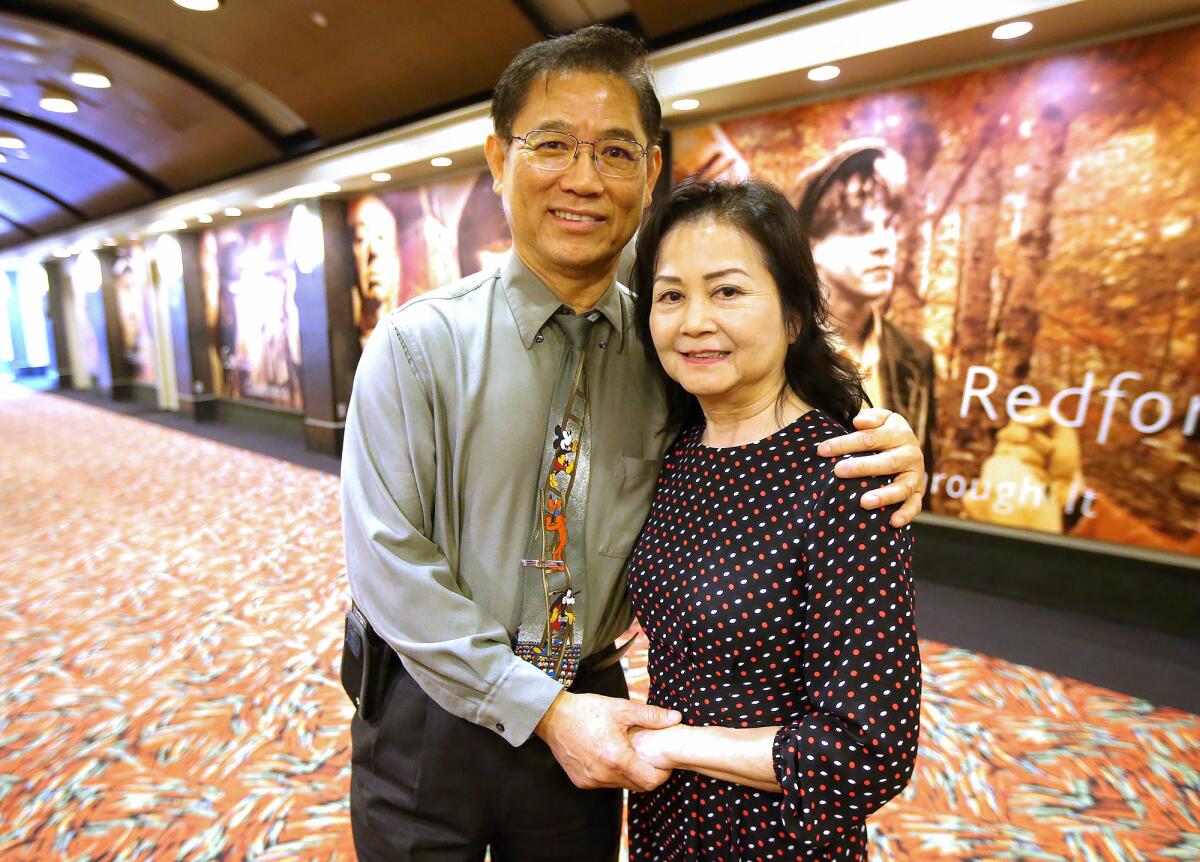
The Caos, who are ethnically Chinese but were born and raised in Vietnam, met as teenagers in the 1970s. During the war, the Vietnamese government had created a “morals code” that banned dancing even in private homes. They had parties anyway, and Millie still remembers a shy Chipaul reaching his hand out and asking, “Shall we dance?”
But only six months after they met, the young lovers were separated. The Viet Cong came to power, and Chipaul knew he and his family had to leave.
Unlike Millie, who lived in Saigon, Chipaul’s family lived in a small town where it was obvious who was Chinese Vietnamese. He went to a Mandarin-language school, his mother was a businesswoman, their community had money and property to be confiscated. They soon became targets.
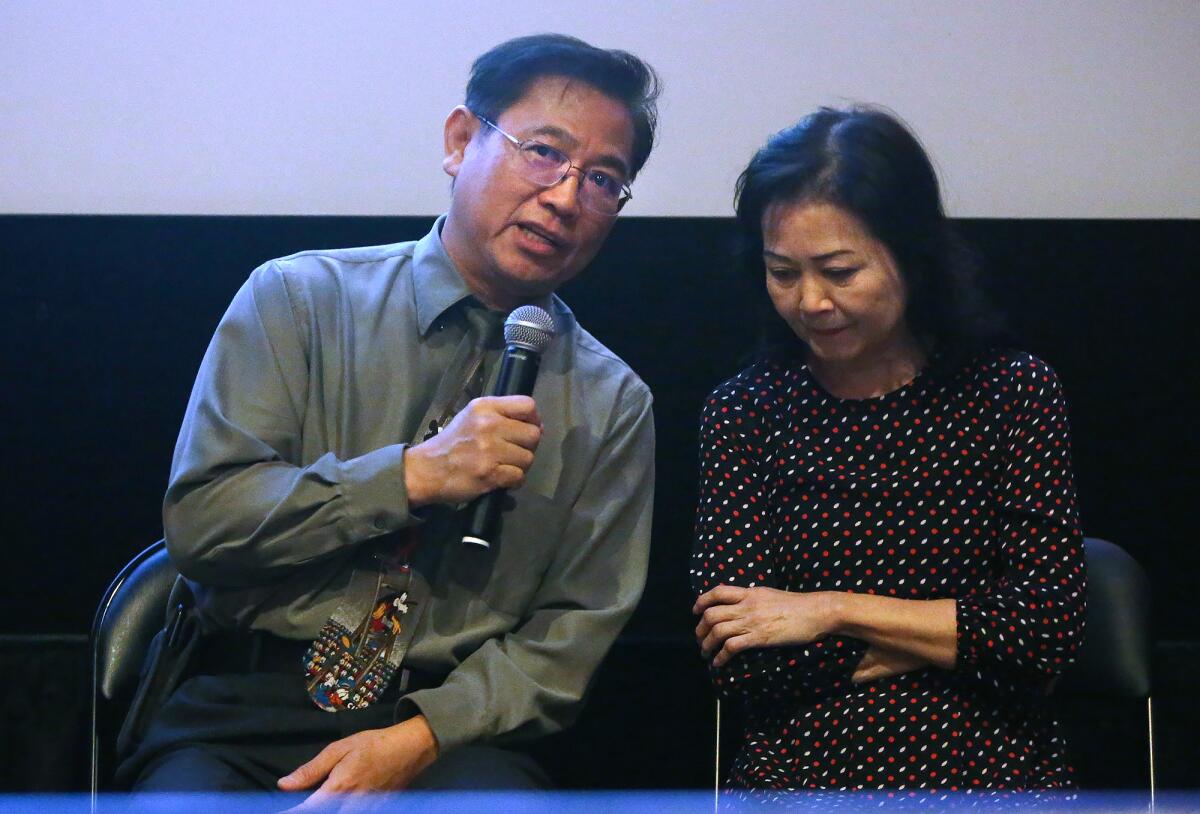
At a Q&A session after the screening of “Walk Run Cha Cha” at the Viet Film Festival in Orange in October, an audience member asked the Caos: If you’re Vietnamese, why do you speak only Chinese in your movie?
“His face changed as soon as I spoke to him in Vietnamese,” says Chipaul. “You’re telling me I’m not Vietnamese, but I’m speaking to you in Vietnamese, just like you. But if you can sense [the skepticism] in the theater, imagine what it was like in Vietnam back then.”
The Vietnamese used to call the Chinese a term that translates to “people from the boat,” Chipaul says, because of how people from China who immigrated to Vietnam, like his grandfather, arrived in the country.
He laughs. “Now we’re the boat people again.”
Chipaul, 20 at the time, and his family took an early boat out of Vietnam and stayed at a Taiwanese refugee camp before coming to America.
It took six years for him to figure out how to get Millie here. The process involved sponsoring her on behalf of her long-estranged father, who was living in the U.S.
“I came by plane, after two unsuccessful attempts by boat,” she says. “That is something like God arranged, because if I escaped like the boat people, I probably cannot survive.”
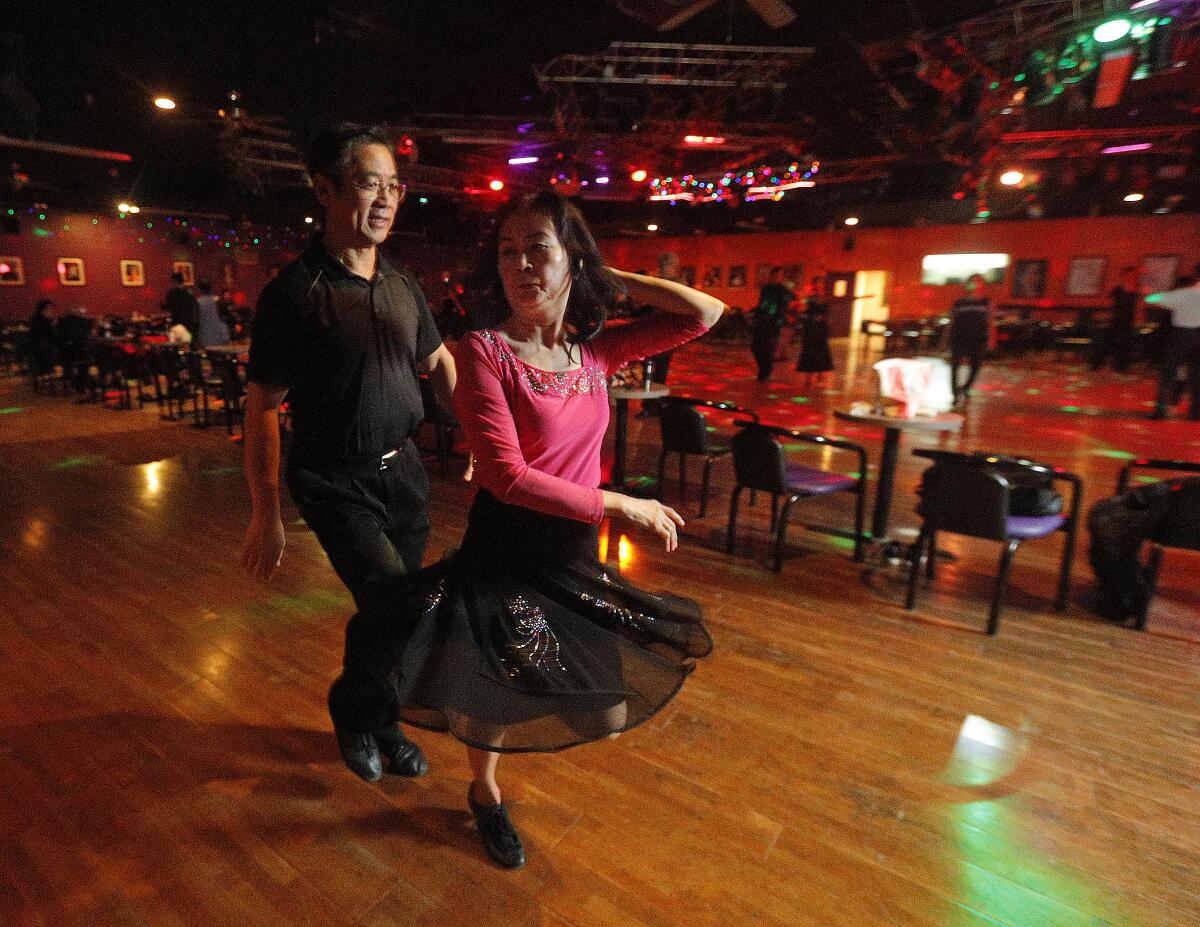
Nix’s short documentary tells the Caos’ love story as a series of new beginnings — how they had to restart their relationship after Millie came to the U.S. and how they’re now just learning to enjoy their lives and reconnect through dance after decades of being in survival mode. “Today I can use my body to reach another level of freedom,” Chipaul says in the film.
Nix is working on a longer feature about the Caos, as she’s been filming them for more than five years.
She describes a moment before a performance, as Chipaul nervously takes off his Patagonia jacket off to reveal a sequin costume.
“The crowd went, ‘Wow!’” Nix says. “And then they dance, and the place went crazy. People were crying. They gave them a standing ovation.”
“People were crying?” Millie asks. “Just to see him take off his jacket?”
Chipaul laughs.
“You get a tiny taste of them in the short film, but they’re so much funnier in real life,” says Nix.
“Walk Run Cha Cha” ends with a fantasy dance sequence, where the Caos dance the rhumba to the Carpenters’ “We’ve Only Just Begun.”
“[Millie’s] always thought of this song as her and Paul’s song,” says Nix.
Carpenters songs are notoriously hard to license, but songwriter Paul Williams gave permission for Nix to create a cover version for the film after watching a rough cut.
The full-length feature will have more of the Caos’ backstory as well as more fantasy sequences that express what they are feeling emotionally through dance. Because to Nix, “Walk Run Cha Cha” is more than a love story. It’s about the importance of remembering and celebrating the history of immigrants in the U.S.
“You have Eastern Europeans teaching Latin dance to people in the Chinese diaspora from Vietnam,” says Nix, who is French-Canadian and English. “To me, that’s the best version of America.”
Chipaul points to a Chinese proverb, yin shui si yuan, which translates to “when you drink water, think of its source.”
“America has given us hope and freedom, opportunities and education,” Chipaul says. “We are grateful to this dream land and its people who have helped and mentored us along the way.”
All the latest on Orange County from Orange County.
Get our free TimesOC newsletter.
You may occasionally receive promotional content from the Daily Pilot.






